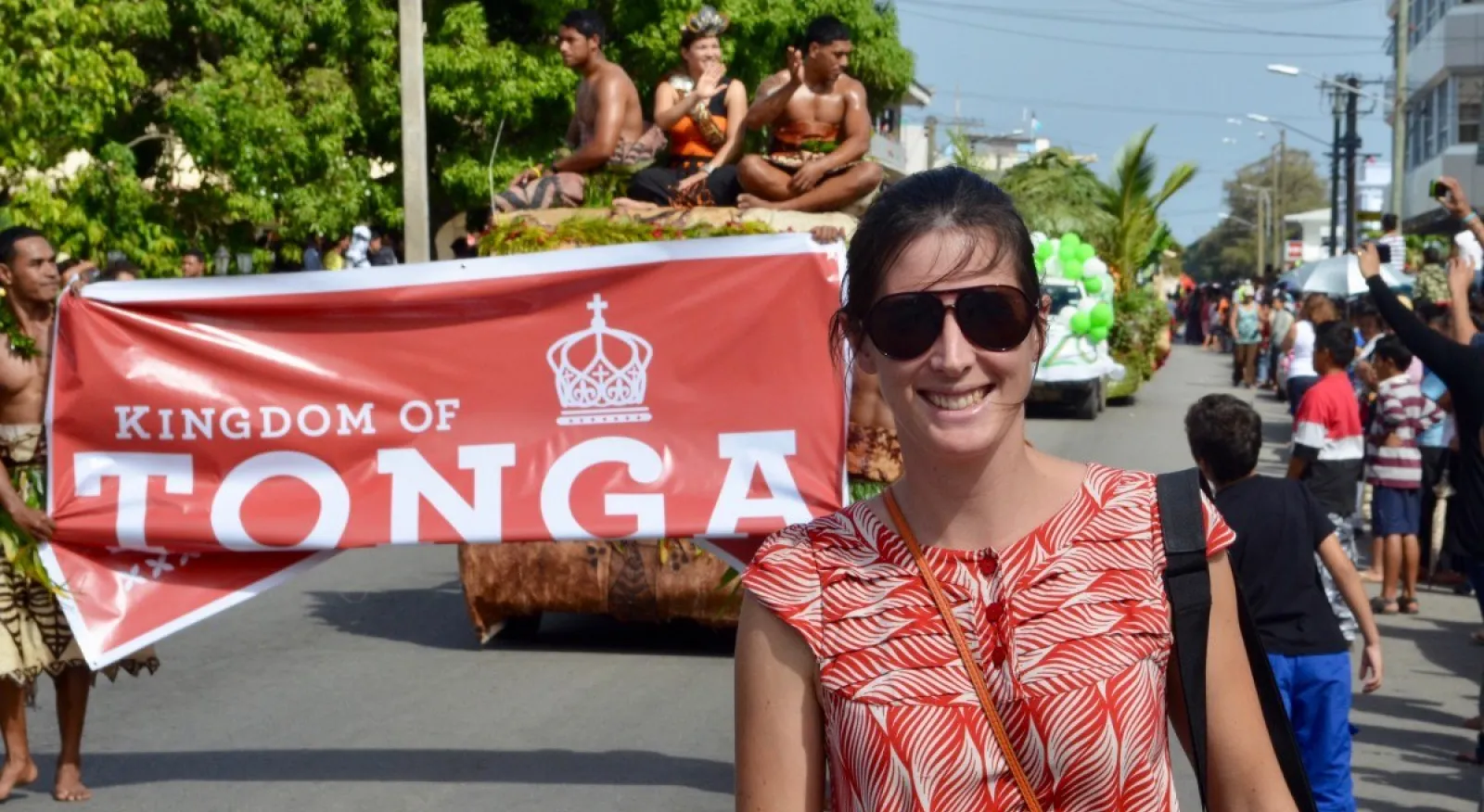'Keep your volunteer experience alive'
After a year volunteering in Tonga, Madeleine Legge kept her volunteering experience alive by staying connected with Tonga and volunteering in her local community.

We asked Maddy about her time in Tonga, why she values volunteering and her advice for newly returned Australian volunteers.
What did your volunteer assignment involve?
I did work around economic policy with my counterpart and others in the Tongan Ministry of Infrastructure. The area I was based in did a lot more than economic policy with very few staff.
So, I also worked on developing content, taking photos and design for the website, with the website designer.
I also worked on the Ministry’s corporate plan and delivered writing-for-government training for staff.
What was the most rewarding part of your volunteer assignment?
The great friendships I developed with my Tongan colleagues, the broader Nuku'alofa (capital of Tonga) community and other Australian volunteers. I enjoyed my volunteer work and loved taking part in different sports and activities with colleagues and others.
Tongans are great sharers of food. The staple at the office was keke - deep fried donuts. They are very tasty but not very healthy! I liked bringing in salads to share which were joked about as palangi (white people) food but also widely enjoyed.
What kinds of challenges did you have when you returned to Australia?
When I first arrived back at Sydney airport I was shocked at the attitude of the bus driver who wouldn't let me on the bus connecting the international and domestic terminals, as I didn't have any Australian dollars (and hadn't realised I needed them).
I thought ‘this wouldn't happen in Tonga!’
But I was lucky enough to be eased back slowly as I got a job working on the Australian Sports Outreach Program in Tonga. That way I remained closely connected to Tonga and was able to travel back there a few times for work and personal reasons.
I also continued to read the local newspaper Matangi Tonga for a while to keep up to date with Tongan news.
What kind of volunteering do you do in Darwin?
I'm currently the volunteer team leader of RotaKat, a sailing program for young people experiencing social disadvantage.
We sail hobie cats every Sunday in the dry season, providing an opportunity for young people and volunteers to work together to develop sailing skills.
Why is volunteering locally so important?
By volunteering locally in Australia, your work has a good chance of being sustainable. That’s because Australia is where you're most likely to spend most of your life and where you have most of your family and networks.
There is inequity in Australian society and your volunteering contribution within Australia is valuable to nurturing our community.
The Tongan word for volunteering is 'ngaue 'ofa' which translates as 'work of love.'
Many people struggle to get through daily life and if you have the ability to volunteer, it’s a reminder that you're lucky enough to be able to fill your personal love tank.
What advice would you give to Australian volunteers returning home?
There are lots of great volunteering opportunities in Australia which can keep you engaged with new and interesting groups of people.
Alternatively, lots of international volunteers remain connected to the countries where they volunteered by starting social enterprises, getting involved in fundraising for projects or joining local community groups associated with that country.
And of course, there's a network out there (Alumni) in every state of like-minded returned volunteers that you can connect with, at interesting local events!